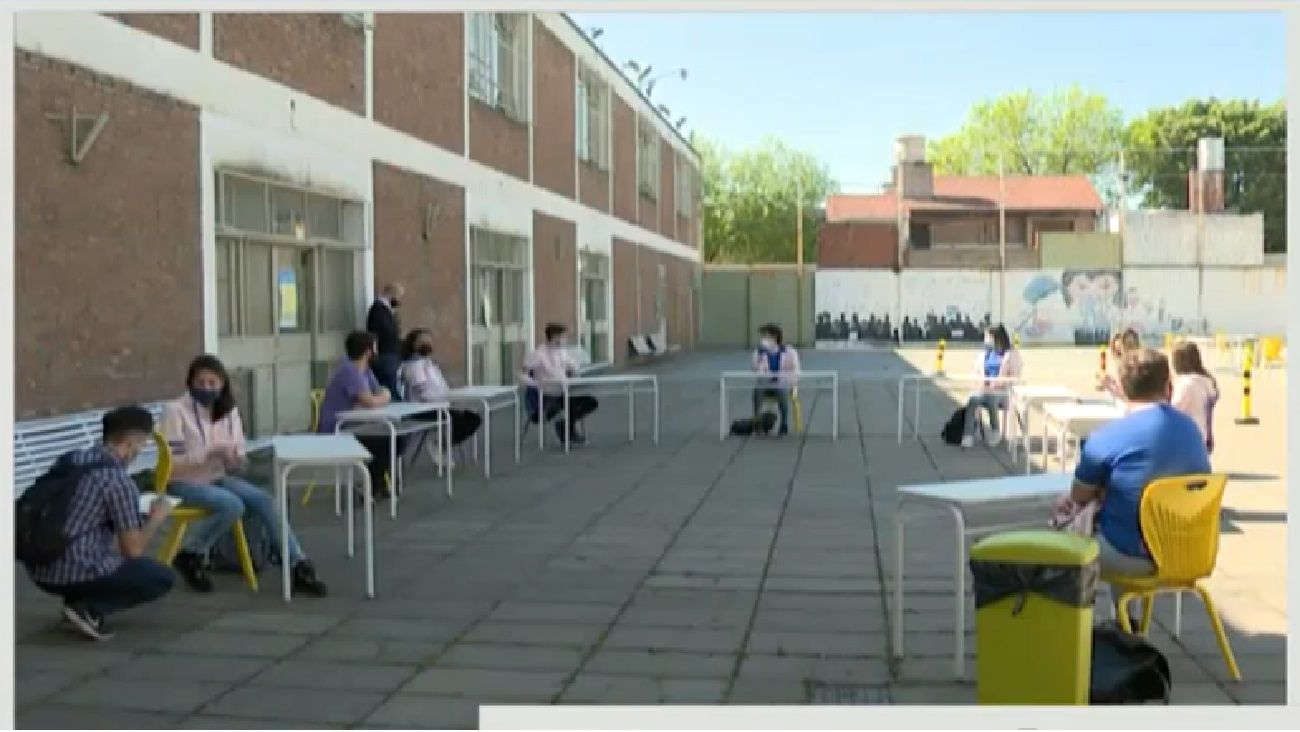
National Academy of Medicine considered “essential” immediate return from face-to-face courses, amid the tense debate on the protocols that each province will apply to prevent the pandemic of Covid-19 and at the same time guarantees a return to class.
In a statement, they warned of the dangers of lack of face-to-face education and deterioration. mental health, putting them at risk of contracting coronavirus students, teachers and families.
“The National Academy of Medicine considers that the immediate return to classroom presence is essential, given that the risks of harming children and adolescents only with distance education, or worse, the absence of education, outweigh the risks of illness with COVID-19 for them and for the teaching staff and that, in turn, this risk can be mitigated with strict observance of the protocols known in their instrumentation and results “, they underlined.
The entity also expressed concern about the impact of the pandemic and the measures used to control it on the health of the population, beyond coronavirus infection, “due to delayed consultations, at the beginning and after-functioning of treatments and especially in what happened to girls, boys and teenagers such as serious mental health problems ”.
From February 17: what will be the “staggered return to classes” from CABA
And they expanded: “Schools are fundamental in the transmission of knowledge and information, but they also have a great significance in the processes of social integration, such as the preparation to think and work collaboratively, which directly influences public health and the economy. The promotion of educated minds is much more democratic than the distribution of other goods, because even the poorest and weakest can access the fruits of culture. “
On the other hand, they cited other countries, such as Norway, Sweden and the United States, where face-to-face classes were returned and exemplified with World Health Organization (WHO) evidence of mild contagion of those under the age of 18 and mild symptoms that the vast majority represented: “Children under the age of 18 account for only 8.5% of reported cases of SARS-CoV-2, which primarily suffer from a mild illness“.
“There is a need to prepare and adapt systems to help save academics behind students as a result of prolonged school closures,” they argued, citing cases of hurricanes in the United States that damaged the knowledge of young people in the United States. moments when you couldn’t go to classes.
However, the NMA also supported care protocols and, in particular, students with pre-existing illnesses. “Observe SARS-CoV-2 mitigation measures, such as use of mask / mask, physical distance and hand hygiene are effective actions to achieve low secondary transmission rates in schools, without causing a greater burden of community infection to date. “
While most educational institutions are not yet reporting on the return of students and their parents, the national government is working on measures to mitigate possible virus infections.
JD / CP